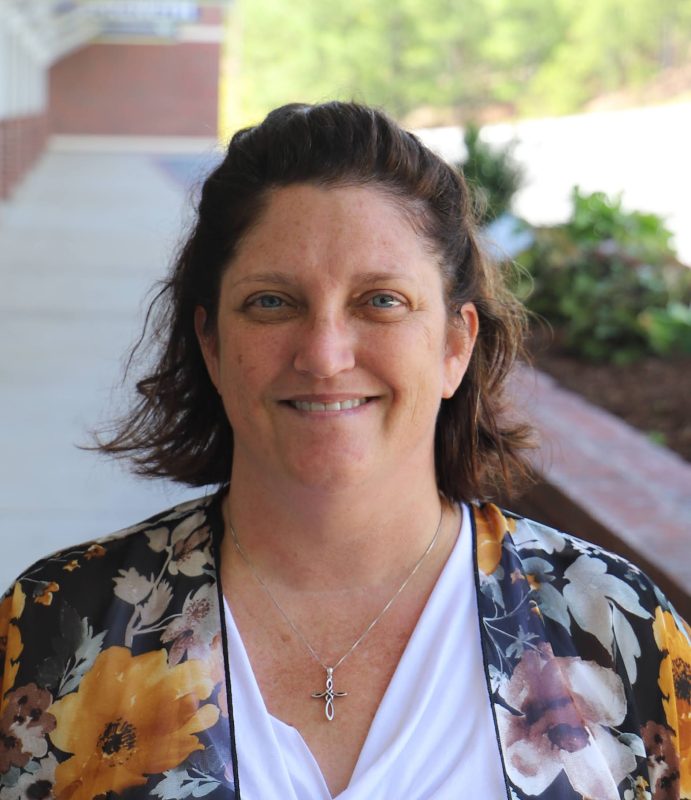October is Dyslexia Awareness Month
To raise awareness about the struggles associated with dyslexia, we spoke with Melissa Hannah, Educational and Language Therapist in our new Foundations Program. The Foundations Program was designed to address the educational needs of students in grades 6-12, with the primary diagnosis of dyslexia or other language-based learning differences.
Melissa was the founder of the first and only fully accredited private school for individuals with language-based learning disabilities (Dyslexia, Dysgraphia, and Dyscalculia) in the state of Arkansas. She is a certified Speech Language Pathologist and Academic Language Therapist. Melissa has extensive experience providing diagnostic evaluations and screenings as well as individual and group therapy for school-age children. She has received specialized training in Multisensory Math, Sequential English Education, The Dubard Association Method, and numerous special education instructional methodologies. She has taught at the University of Central Arkansas and is the founder of H.E.R.E. which is dedicated to designing quality continuing education for parents, educators, speech language pathologists, and related professionals. In addition to providing daily group language therapy for our students, Melissa provides support for CAC teachers and performs diagnostic evaluations.

How many people are affected by dyslexia? How common is it?
Dyslexia is one of the most common language-based learning disabilities. One out of five individuals is dyslexic.
CAC recently launched the new Foundations Program. Can you tell us a little bit about the program and how it equips students for academic success?
The Foundations Program is designed to not only provide much-needed academic support but to also remediate deficits in language and math to ensure success both academically and in life. The Language Arts and math classes are 70 minutes long instead of just 45 which allows for teachers to have built-in extra time for the students. The class sizes are also smaller with 4-10 students in classes. The program also includes the language and literacy class which is a specific class for addressing weaknesses in reading, language and comprehension. No other school that I am aware of has a built-in intervention class. Most schools allow parents to have dyslexia interventionists to come in 2-3 times a week but no one has a specific class taught by a qualified professional 5 days a week for 45 minute periods. We are using a proven dyslexia intervention curriculum in those classes. These are the classes that I teach. Students have accommodation plans which is common practice for schools but ours are tailored to meet their needs both in the Foundations classes but also the other classes. The goal is to provide the support and intervention needed to remediate deficits and teach compensatory strategies so they can transition to more traditional classes when ready. All of the staff is highly trained and specialized in their content areas which makes a huge difference in the content taught and how it is delivered.
As an educator, what would you say to a student who is struggling or feels like their dyslexia may be too big of a hurdle to overcome?
Many students feel this way because they do not understand or have the opportunities at school to celebrate their strengths. Many students get overwhelmed by the daily tasks the get lost in how hard things are as opposed to how to attack the work using their strengths. That is one thing we teach them in the Foundations program. They also see it as a disability and although it is classified as such it is a neurological difference not a deficit. The brain processes written information differently unless educated in a specific way which is what we are doing especially with the L&L classes. Once the instruction addresses the specific weaknesses, we actually rewire the brain to process written information in a more neurotypical fashion. The most important aspect is to teach them how to work with their strengths and weaknesses because they are beautifully and wonderfully made and not broken. I am dyslexic as well and didn’t know until I was an adult. I spent many years believing I was dumb and not capable. The Foundations program is proving to the students not only are they capable but they are gifted.
Do you have any advice for students who have been diagnosed with dyslexia?
It is important to understand what dyslexia is and is not. It is not something bad or something to be ashamed of. There are many gifts that come with dyslexia and without the dyslexia they would lose those gifts. So, it is a blessing that just requires different or rather specific instruction in certain areas. It also requires kids to learn tools and strategies so they work with their strengths and not weaknesses.

